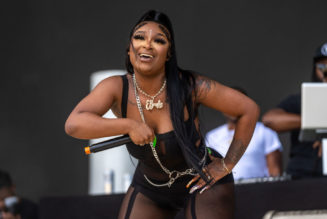The Recording Academy has announced a series of reforms designed to make the Grammy Awards more transparent while reducing future controversies. Via Billboard and Variety, the biggest change is the almost total elimination of the secret nominating committees which determine who is eligible to receive the awards. The Academy has also reduced the number of categories in which members may vote, added two new categories, and rolled out a reorganization of the “craft” categories (packaging, producer, and liner notes).
The secretive nomination committees has long been a point of contention, in part because, since nobody knows who they are, it’s easy to project malign intentions onto their choices. This happened at the 2021 Grammy Awards, when The Weeknd received no nominations despite having an album, After Hours, that was both well-reviewed and a commercial juggernaut. Many people, not least The Weeknd himself, speculated that the secret committees were to blame. Sources close to the singer suggested he was shut out as an act of retaliation for playing the Super Bowl Halftime Show, and The Weeknd announced a Grammy boycott, explaining, “Because of the secret committees, I will no longer allow my label to submit my music to the Grammys.”
We may never know the committee members’ thinking, but their power was undeniable. In March, Billboard reported that, “Rank-and-file Grammy voters determine the final nominees in just 12 of 84 categories.” Every other category was subject to the whims of these anonymous groups.
Related Video
The committee approach began in 1989 with the classical categories, and was adpated by jazz soon after. Their use was greatly expanded in 1994, after those rank-and-file Grammy voters nominated opera trio The Three Tenors and lounge lizard Tony Bennett for Album of the Year while shutting out grunge and hip-hop. At the time, the committees were supposed to be a progressive force within the Academy, acknowledging popular music that the staid, old, mostly-white membership wanted to ignore.
But in recent years, the critique has shifted. Instead of a secret committee to protect the awards from the Academy voters, audiences began demanding a younger, more diverse Academy membership. Now, the Academy thinks it has made enough progress on that front to remove the guardrails. Ruby Marchand, the Academy’s chief industry officer, said, “As we continue to build a more active and vibrant membership community, we are confident in the expertise of our voting members to recognize excellence in music each year.”
Now, nominations in non-craft categories will be determined by a majority vote of the Academy’s voting members. Besides that, the Academy has confirmed that more than 90% of its members will go through the requalification process by the end of 2021, which should ensure that those voting are actively participating in music creation. These new rules will apply starting with the 2022 Grammy Awards.
Besides that, the Recording Academy has announced a few more reforms. Going forward, members can only vote in 10 categories, whereas before they could vote in 15. This reduction is designed to force voters to focus on their areas of expertise. While this has never been officially confirmed to our knowledge, it has long been rumored that jazz and classical voters are responsible for missteps in the major hip-hop categories, as when Macklemore and Ryan Lewis beat out Kendrick Lamar for Best Rap Album in 2014. By cutting down the number of votes that members can cast, the Academy hopes the remaining votes will be of higher quality.
The 2022 Grammys will also see the addition of two new categories: Best Global Music Performance (Global Music Field), and Best Música Urbana album (Latin Music Field). Besides that, six current craft fields will be consolidated into two fields: Package Field, Notes Field and Historical Field will now fall under the Presentation Field umbrella, while Production, Non-Classical Field, Production, Immersive Audio Field, and Production, Classical Field have been consolidated into the Production Field.
“It’s been a year of unprecedented, transformational change for the Recording Academy, and I’m immensely proud to be able to continue our journey of growth with these latest updates to our Awards process,” said Harvey Mason Jr., the interim president/CEO of the Recording Academy. “This is a new Academy, one that is driven to action and that has doubled down on the commitment to meeting the needs of the music community.”
The 2022 Grammy Awards will take place on January 31st, 2022. After consulting with our crystal ball, we can confirm that despite these changes, the Recording Academy will still get a bunch of things wrong.










